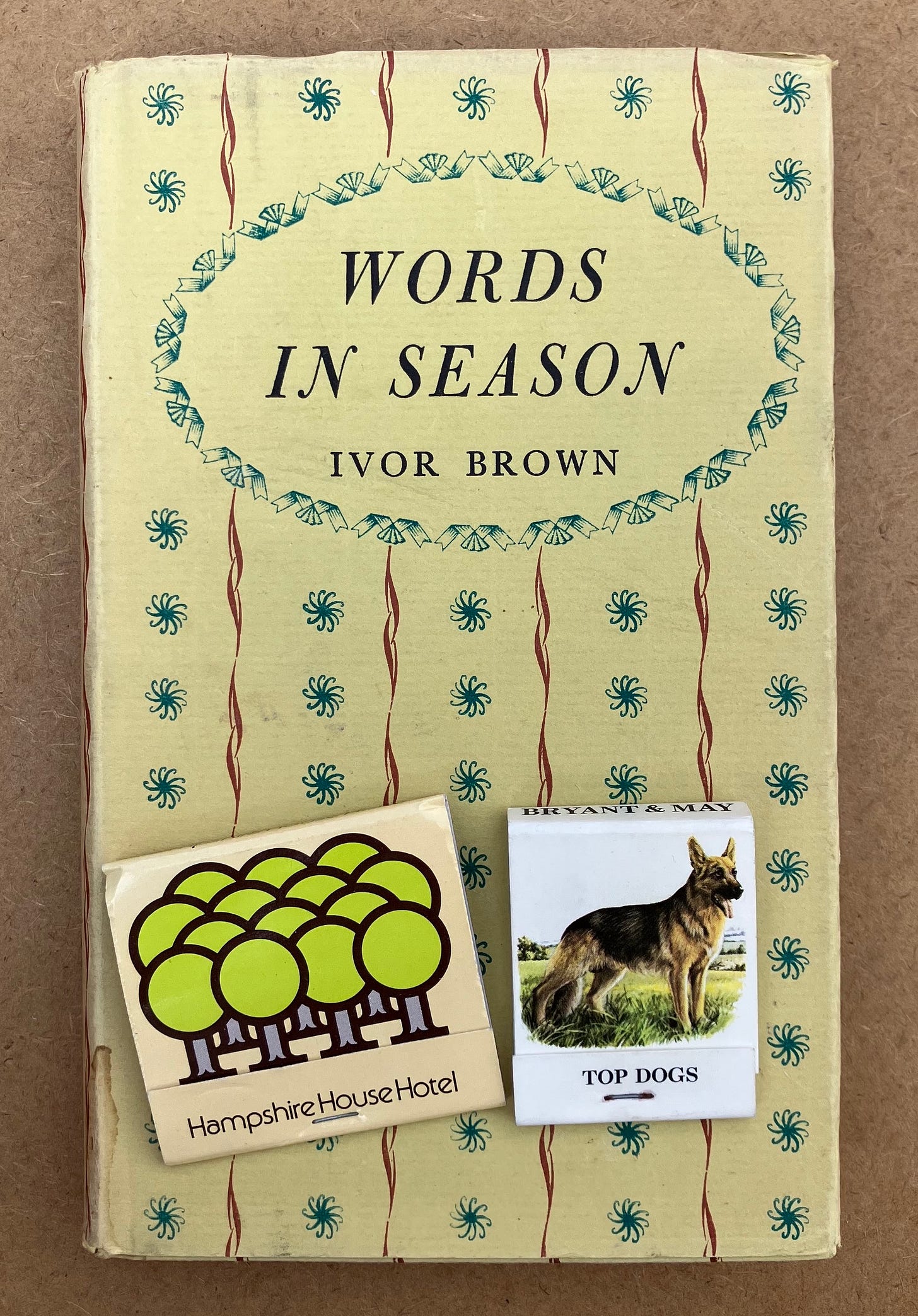I’ve been waking up early on these summer days; sitting outside with a tea in the garden with the smell of the fennel and the sound of the wasp who gnaws our fence. Have you ever heard a wasp do this? It is a surprisingly loud sound; when I first heard it, I was worried it might be a rat — the loud volume of it is much more like a rodent chewing than a tiny insect — and when I traced the source, I couldn’t believe it was a wasp. My understanding is that the queen wasp chews off strips of wood — in this case from the fence panels (shown in the picture below) – and chomps them up like gum so that they mix with saliva, which acts like glue, to make cellulose/paper. Or wallpaper and wallpaper paste, as the wasps then use the material to make their nests nearby. The ‘nearby’ element being alarming information, I worried this morning when I heard an intermittent buzzing that sounded like a million buzzy bees/wasps together. Fortunately, it turned out to be a single bumblebee flying over the guttering, momentarily transforming it from drainpipe to didgeridoo. Nevertheless, I thought I ought to do a bit more wasp research, and apparently, they (the fence nibblers) make their nests underground or in a bush, so I’ve left ‘my’ wasp to it and asked her nicely to please not surprise or swarm around me at any point. There have been fewer wasps this year, according to this BBC article, which I didn’t read all of it because I got to the subheading ‘as big as basketballs’ and felt I’d read enough; even though they were referring to the nests, I was still left imagining a basketball-sized wasp.
Anyway, ‘one’ can’t sit around thinking about wasps all day. So, after my cuppa, and while it was still early, I got on with some important Sunday business – I went to the car boot sale.
And I thought I’d share my boot-sale buys with you: I got a hardback book and two matchbooks, for which I parted with the princely sum of one whole pound (actually not whole – split into the two separate fifty-pence transactions).

And here’s a look at the matchbook insides:

I also got a bonus treasure as, happily, for this small-time postcard collector, there was a postcard tucked inside Words in Season, featuring the incredible line:

That was worth the fifty pence in itself, but the book also contains some right old gems. The blurb is pleasingly written, so I’ll share it here in full:
Ivor Brown has written much about words and his voice is familiar on the air with his brief, amusing comments on words in the news. He dismisses any claimer to being an etymological polymath – that is the kind of jargon he hates – and he would not even admit to being a "wise guy" about words. He merely enjoys them and tries to say why.
The words discussed in this book are, as the title indicates, those most in use at certain seasons of the calendar. The author follows the year as it ripens in blossom and fruit, invites to new pleasures of the table, and brings in the sports and recreations of the passing months. Something is said of verbal origins and their oddity, more of their strangeness, their beauty, and their happy employment.
The result is a fascinating medley of a word-collector's thoughts. It can be called an anthology, since it brings together flowers of the field and flowers of speech, landscape and language, the fire-side pleasures and their cordial, glowing vocabulary.
Quotation from the poets is frequent and gives grace to the argument. The reader will be told a thing or two about the source and history of the words: but he is [she is / they are] not bombarded with the science of "semantics”. Consequently he should find his spring made livelier (why daffodil and tulip?), his summer made richer (why apricot and peach?), his autumn more appetising (why partridge and pheasant?) and his winter warmer (why Yule and mistletoe, why hearth, why punch, why pudding?). Inquire within.
Here’s a peek inside:

Reading through some more of Words in Season, I found I disagreed and agreed with it in equal measure. I loved the dive-deep descriptions of words; but ‘Ivor and I’ have otherwise very different personal tastes. Here are some snippets of his writing, with my verdict added.
On mulberry: 'Here is the most soothing of our berry words.' Agreed.
On lemon: 'The word lemon has the right coolness and is easy to the tongue.' Agreed.
On grapefruit: ... 'a fairly recent arrival and not to me alluring. It is so often the prelude to indifferent meals. Its claim to the prefix grape seems flimsy and mysterious.' Two times disagree – I love grapefruit. As for the prefix comment – well I have an advantage over Ivor on this one: the internet. Apparently, the name is because grapefruits grow in clusters like grapes.
On summer: 'The "su" start has a power to soothe. Language is often shaped according to these aptitudes. There could be a cold whistle of wind in a word beginning with an "s" and a hint of the stinging storm: but the presence of the "u" followed by one or two "m's" is emollient and "s" is often soporific.' — nice description, agreed.
Finally, on ice-cream: 'The tri-coloured Neapolitan is spoiled for me by the chocolate portion: chocolate into ice-cream will not, in my opinion, go.' — hard disagree*.
* I read this out loud to my boyfriend (chocolate ice-cream fan), and he said, ‘although, I have to say that the chocolate in Neapolitan ice-cream specifically isn’t very nice, and my cousin used to stir all the stripes together into a big soup, which made me feel unwell.’ So maybe we’ll let Ivor have that one.



